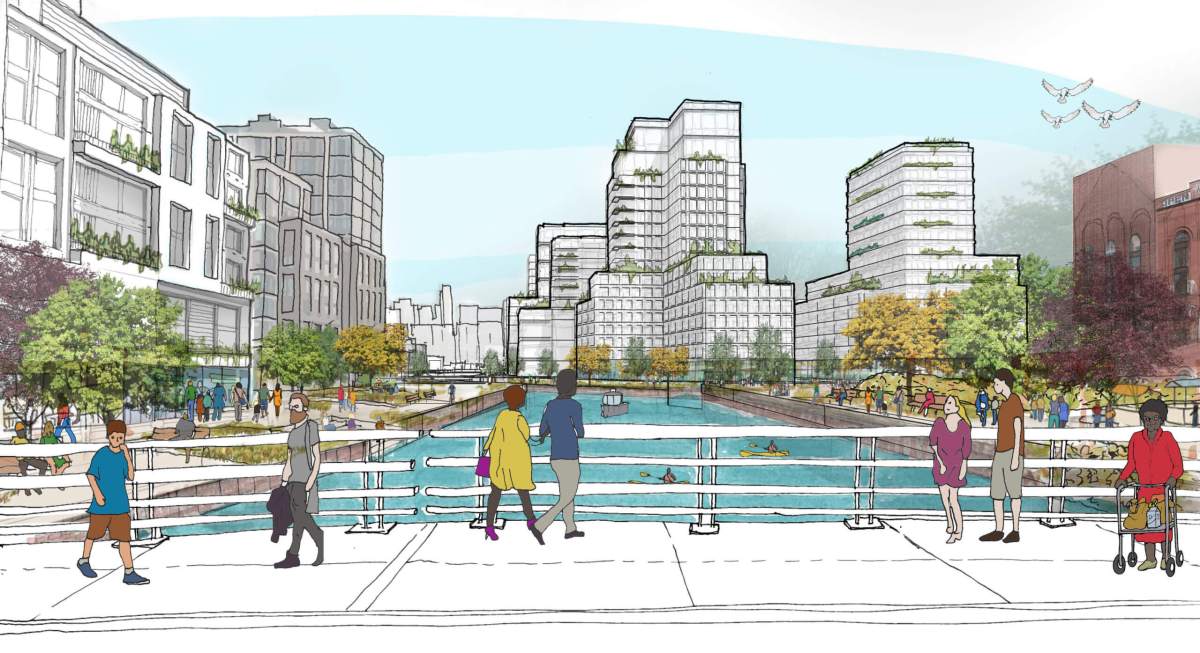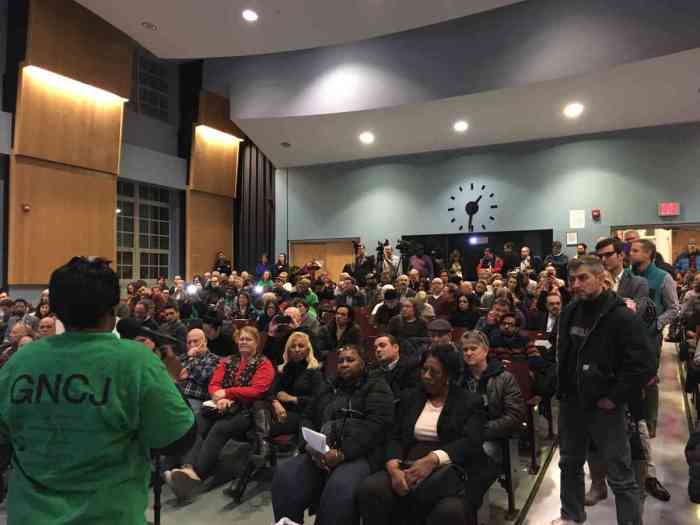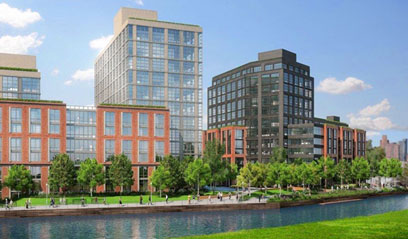As the city reemerges from the coronavirus pandemic, a group of residents in and around Gowanus are demanding a halt to the city’s planned rezoning of the neighborhood, arguing that bureaucrats have failed to adjust their plans to deal with the new realities of city dwelling life.
“In the wake of COVID-19, with both the city and state budgets in crisis, the economy in free fall, and as many as 20 percent of Americans having lost their jobs — including a disproportionate number of people of color — this plan is woefully out of step with what the city needs right now, or what it can afford,” read a recent letter by the group Voice of Gowanus reads.
The loosely-organized coalition of local advocates, who have opposed the rezoning before the pandemic, wrote the petition addressed to local councilman Brad Lander and other city, state, and federal officials, arguing that the legislator should not push for allowing developers to erect 20- to 30-story high-rises with luxury apartments and bringing thousands of new residents to the area while the city faces a staggering budget shortfall.
“New York City is going to have a huge deficit. Is this the time to give even more money to the developers for apartments we might not even need,” said Carroll Gardens blogger Katia Kelly, who helped write the letter.
The planned rezoning will bring around 8,200 new apartments to the area by 2035, including around 3,000 of which below-market-rate, according to the city’s own estimate.
Another opponent of the plan, however, argued that because the city’s population has seen thousands of people newly out of work due to the viral outbreak, many might not even have a salary that would qualify them for affordable units.
“A huge percentage of people have lost their jobs and even the so-called affordable housing requires a certain amount of income, which many now don’t have,” said longtime Gowanus resident and author Debbie Stoller.
The advocates opined that with many people leaving the city for more spacious pastures, existing apartments will become available at lower rates.
“What’s the hurry, because rents will go down, there are lots of apartments becoming available,” said Kelly. “I see three to four moving vans every time I leave my house.”
The city’s scheme could bring in as many as 20,000 new residents to the neighborhood and the opponents of the plans worried about crowding, especially on the local subway lines that were already packed pre-pandemic.
“They’re not going to be contributing anything but putting a small city into the neighborhood,” Stoller said.
Locals previously expressed concern that the rezoning could reduce the amount of manufacturing in the Gowanus Industrial Business Zone, and Kelly noted how vital local industry has been in making protective equipment during the pandemic.
“We saw that manufacturing close-by is very important,” she said. “If there’s a way to restart the economy by restarting the local industry, we need to have spaces in New York City where we can manufacture masks or whatever you need.”
The Gowanus plan is likely the last major rezoning under the de Blasio administration, which has so far pushed through rezonings in five neighborhoods out of 15 Hizzoner originally wanted to in order to further his goal of creating 300,000 affordable units.
The Bushwick rezoning fell apart due to disagreement between city agencies and local politicians and community groups. A state judge also annulled the rezoning proposal in Manhattan’s Inwood neighborhood, but the city has appealed that ruling.
The Department of City Planning was set to release a draft of its Environmental Impact Statement — which analyzes the potential affects of the rezoning and formally kicks off the city’s months-long land use review procedure — but a March 16 executive order by Mayor Bill de Blasio halted those reviews, because they involve several public meetings that could have furthered the spread of the bug.
The agency is still finalizing the draft EIS, according to a spokesman, who said that the plans will work to address the inequities that the current health crisis has highlighted.
“We are committed to continuing to work with elected officials and community stakeholders to create a healthier and more inclusive Gowanus – one that is needed now more than ever,” said Joe Marvilli in a statement. “The proposal will address equity and health issues brought into sharp relief by the pandemic and respond to the urgent need to produce affordable housing, more local jobs, and better open spaces while improving health outcomes and resiliency to create a more vibrant future for this neighborhood.”
Lander last month told City Limits that if the rezoning process doesn’t move ahead in “the next few months,” it won’t get through in time before he and de Blasio leave office at the end of 2021.
The lawmaker did not respond to a request for comment, but in recent emails to constituents, the pol warned that the city faces a massive loss of affordable housing in the coming years due to city budget cuts. He previously argued in support of the rezoning for creating more affordable units in the area.
De Blasio plans to cut some 40 percent of the Department of Housing Preservation and Development’s funds for affordable housing for this and next year, which advocates and politicians claim could lead to the loss of more than 20,000 cheaper units during that time.
Update (June 11, 6:45 pm): This article has been updated to include comment from the Department of City Planning.
























